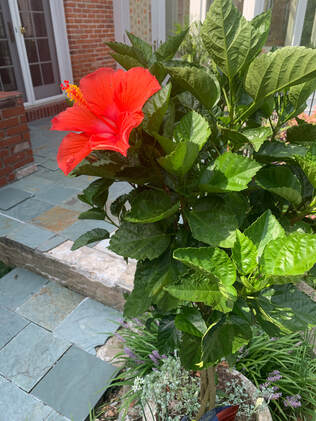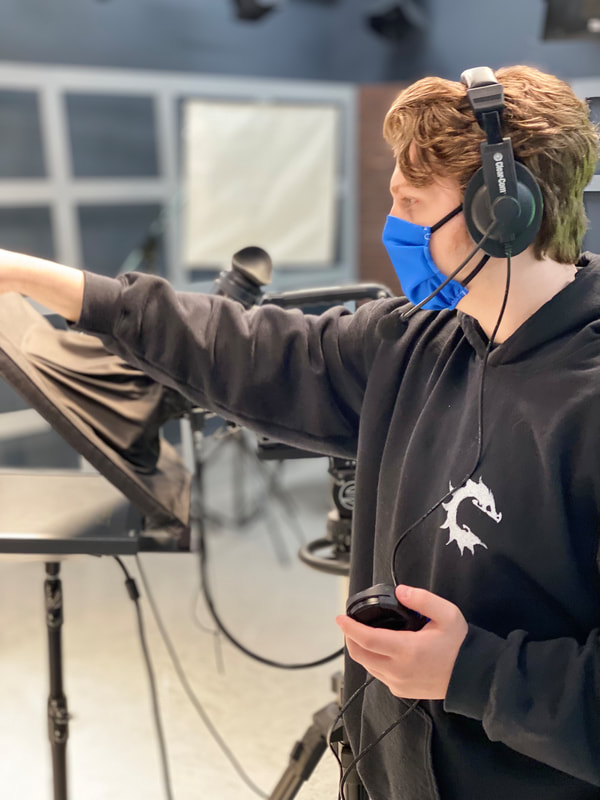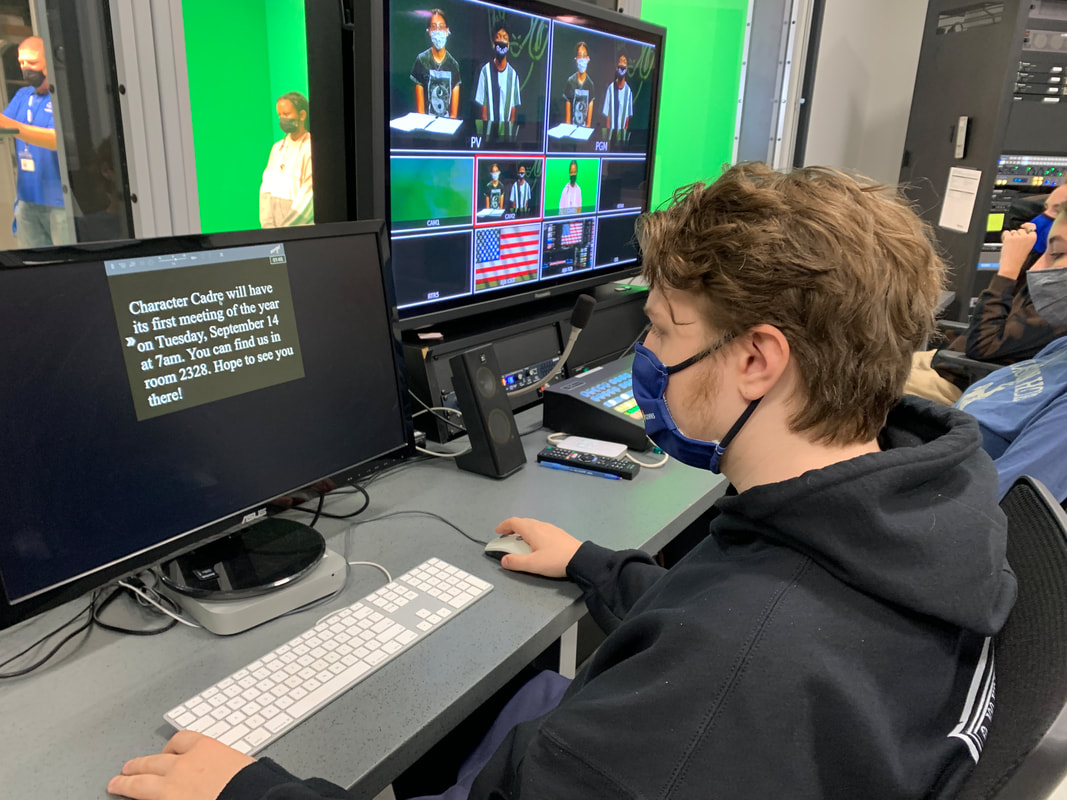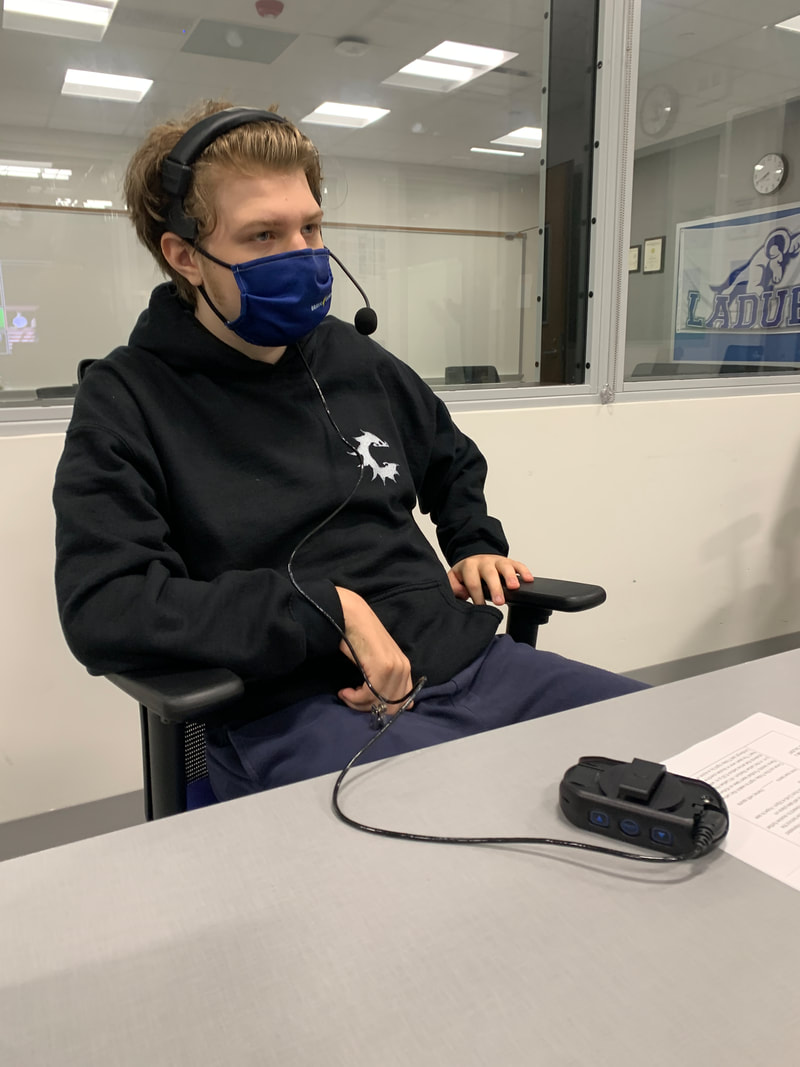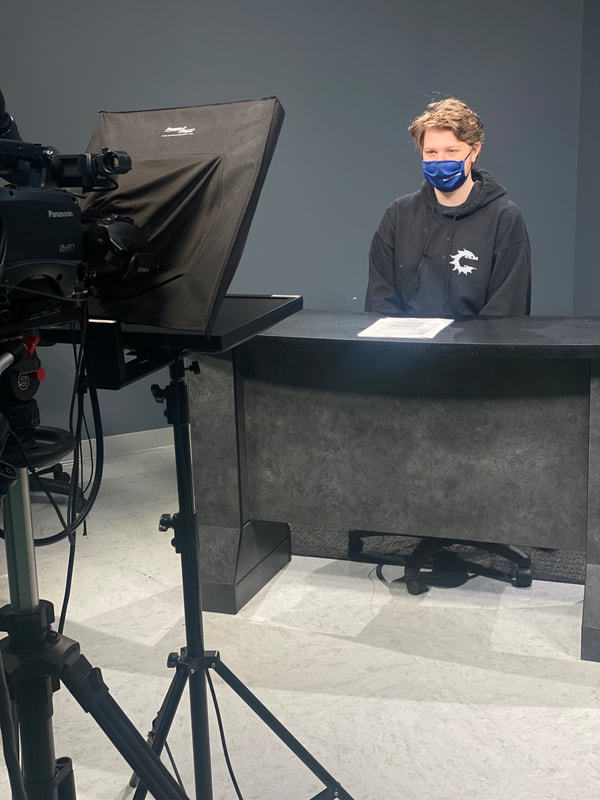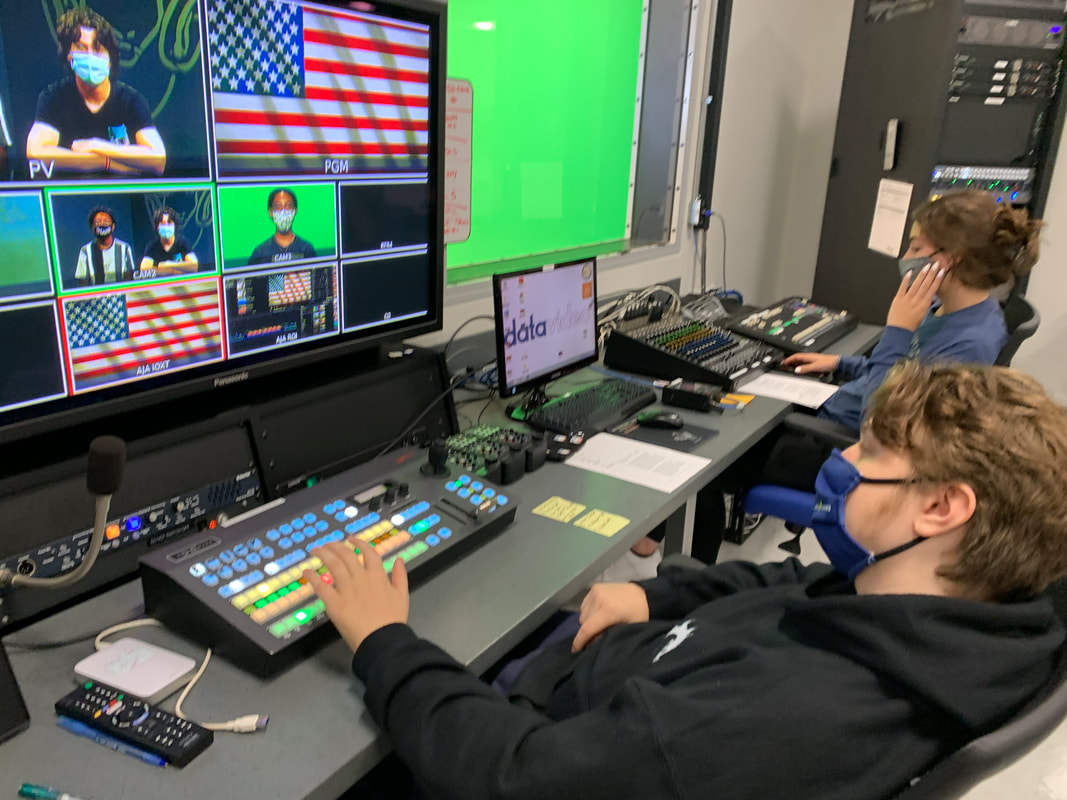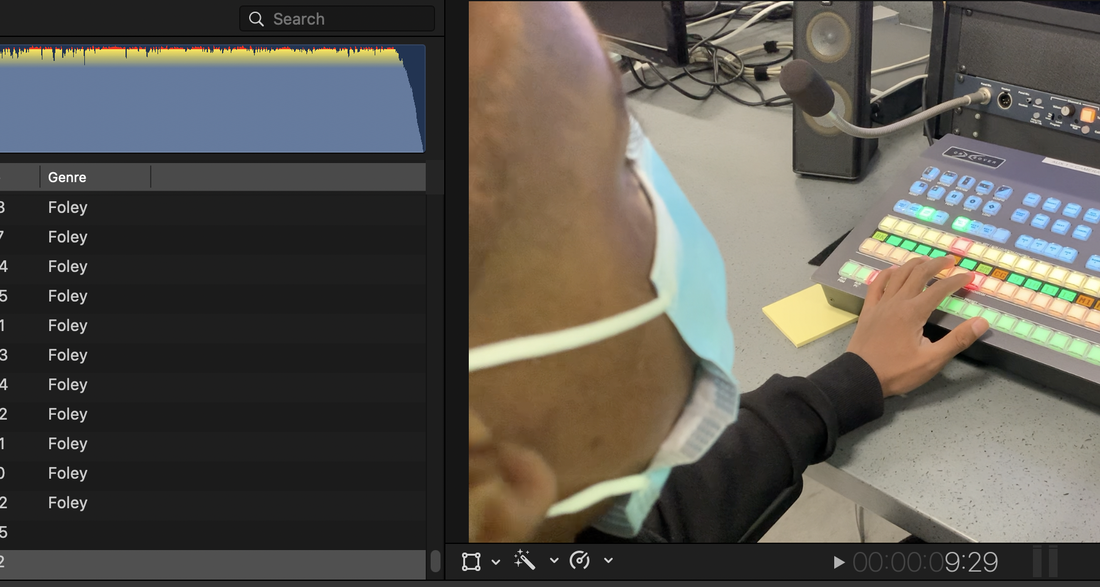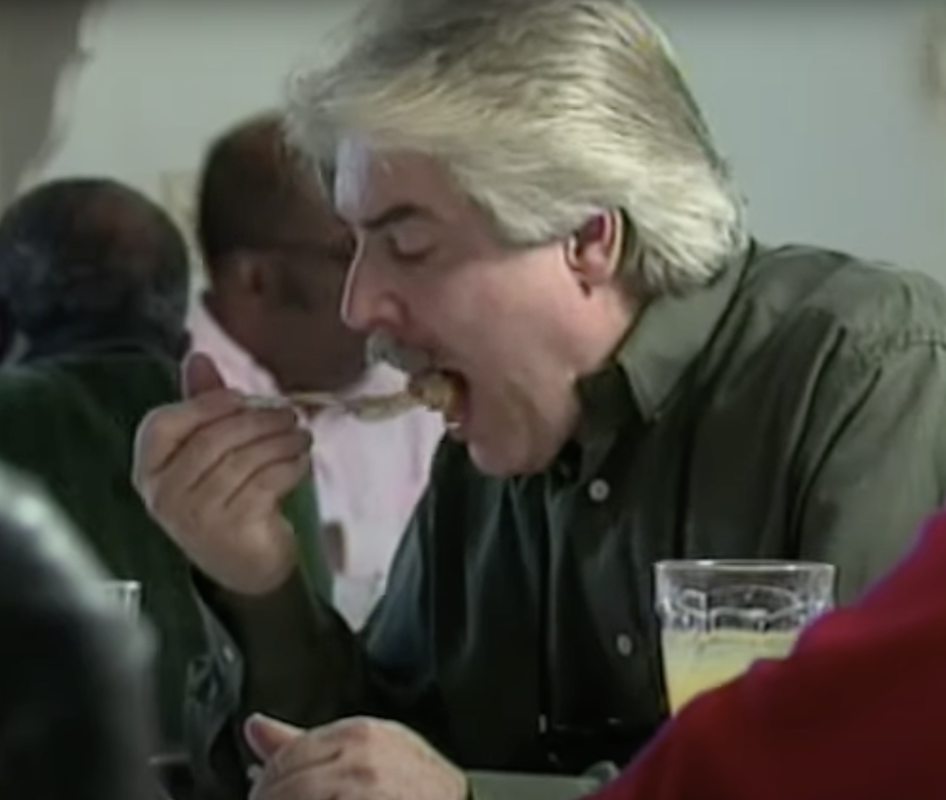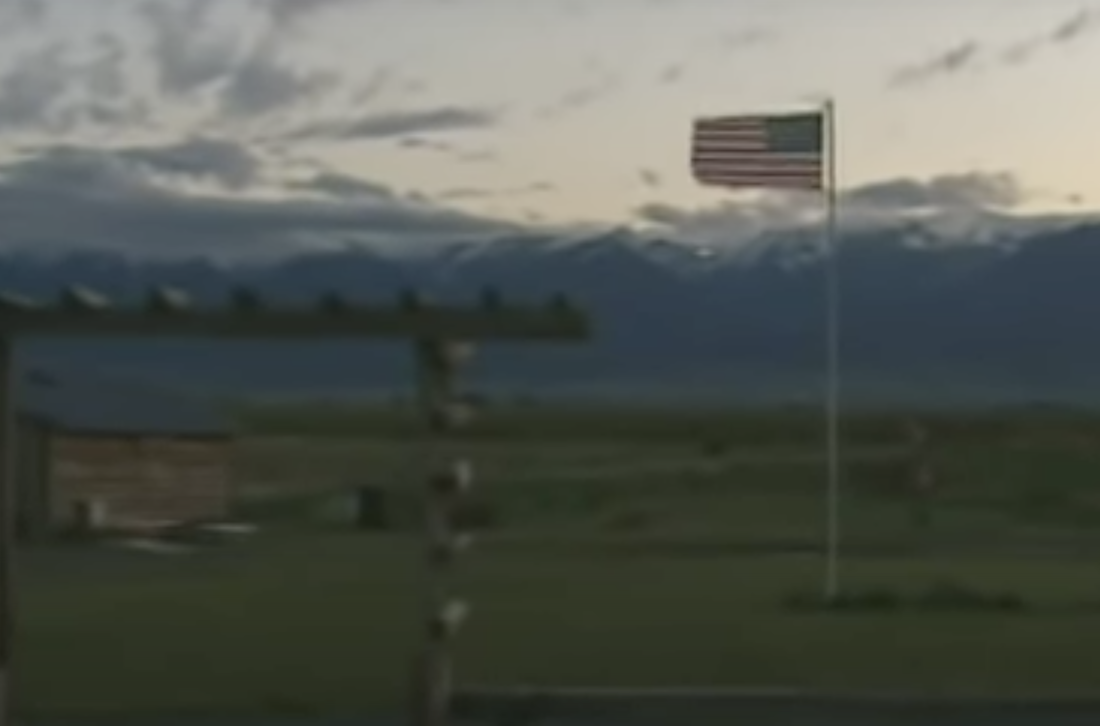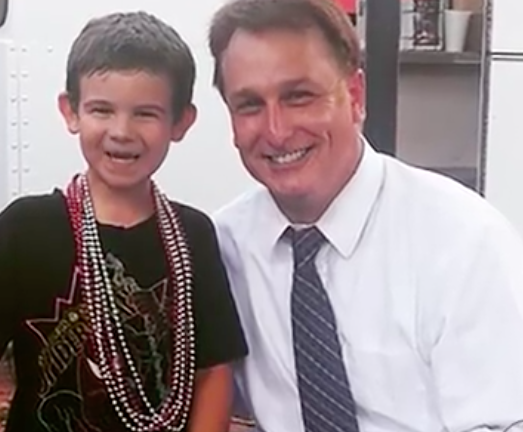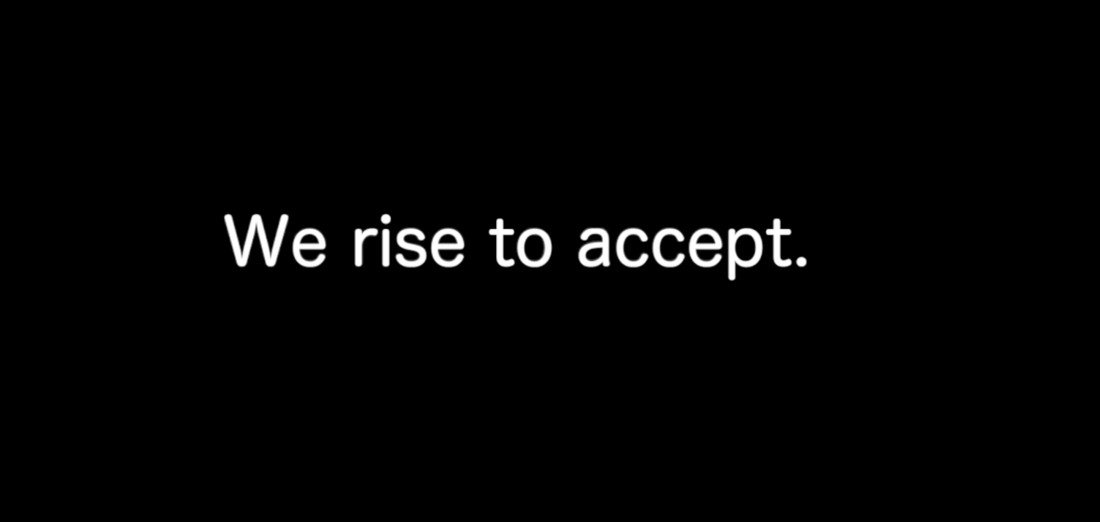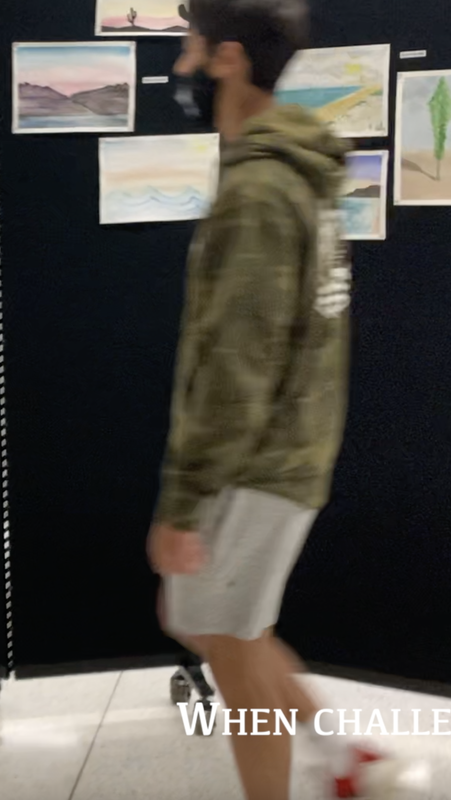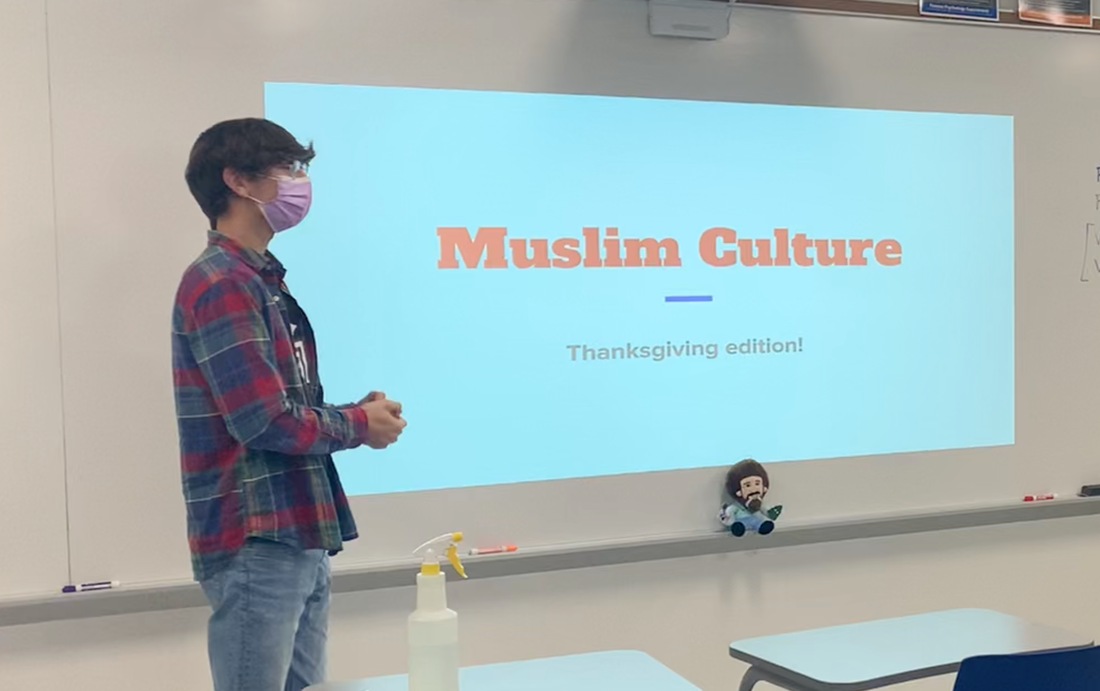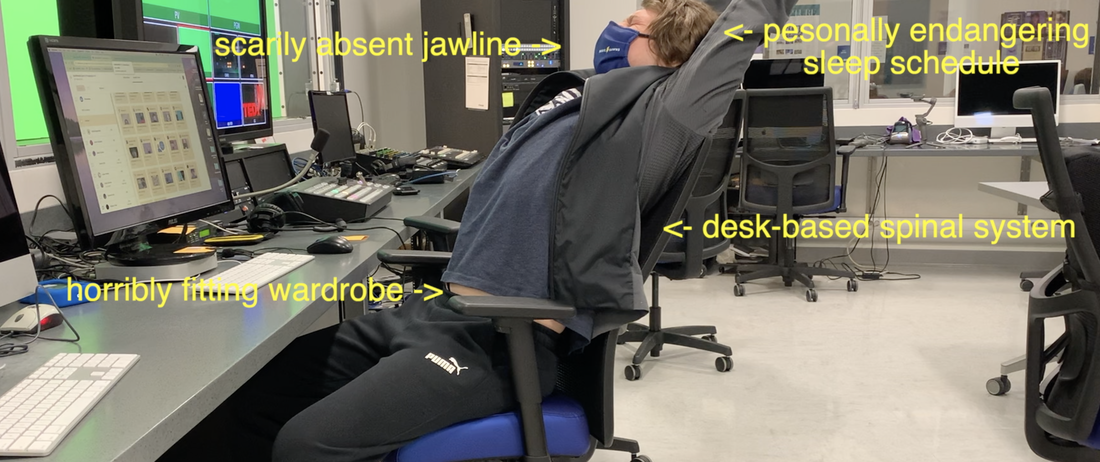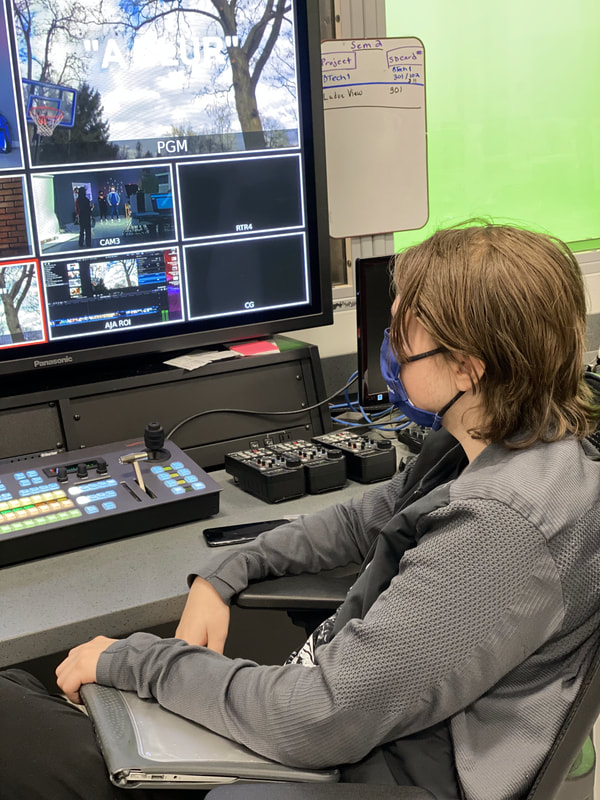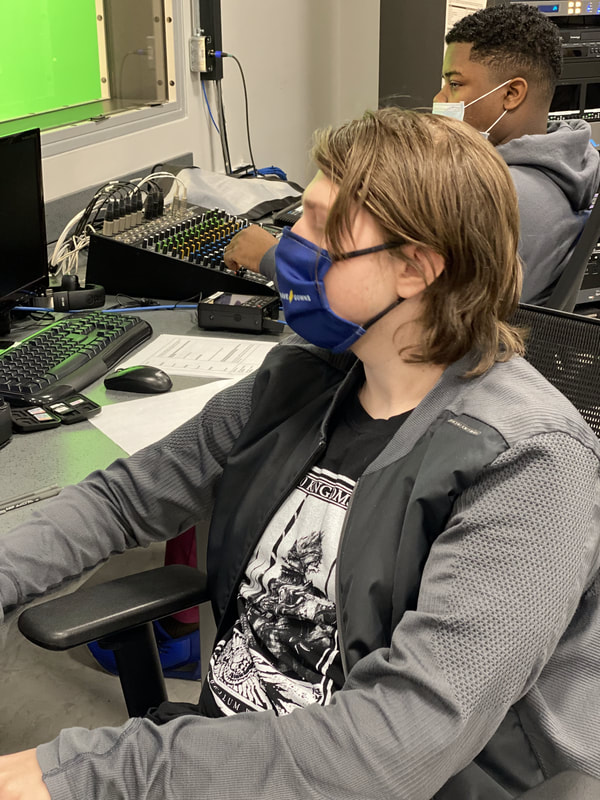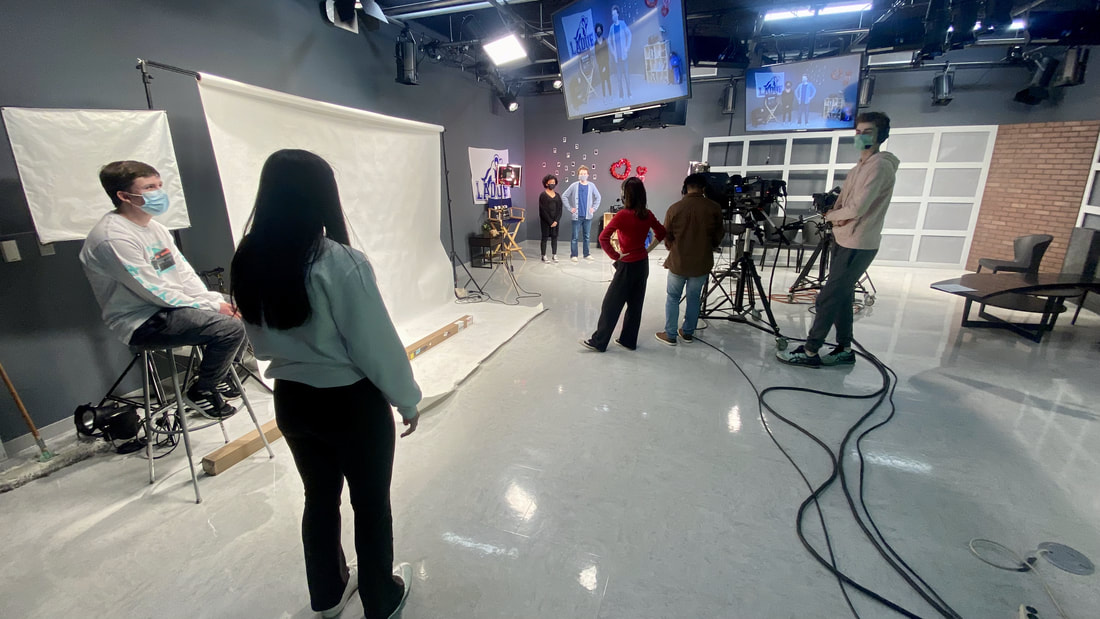BLOG
Adobe Spark Selfie
So, I don't know much about taking pictures, but what I do know is that they all depend on good backgrounds. So of course I went out and snapped a picture of myself up against a nice green tree. Unfortunately, when I went to design in Spark, I realized that if your photo's background isn't transparent you can't really do much design wise. So I painstakingly cropped out all the trees, which left me with a nice green glow to my photo, nice as in how cutting down the rainforests is revolutionizing the logging industry. Designing the rest was fun and easy, but the photo itself was decreasing the image's overall quality.
So, lesson learned: Plain backgrounds for transparent images next time, yeah?
So, lesson learned: Plain backgrounds for transparent images next time, yeah?
iAm iMovie
A fantastic first foray into film! Learning the ins and outs of iMovie was pretty easy, because the trailer setup did a ton of the work for me. All I had to do was get good shots, which I think I did pretty well. iMovie was pretty relaxing to work in, and it was very satisfying to play through the trailer every time I added another big segment. If there's one thing I would want to change though it's that in the section of the doors opening and closing blending together, the second door is rushed and you can barely see the green screen room. This was because the iMovie trailer format allotted very specific timeframes for each shot, likely to sync up to the music. If I got to do it again, I would try to speed up that shot to make it less rushed, but I'm pretty happy with the final result as it stands.
Broadcast TV Studio
Wow! In our latest assignment, I got to enjoy the "crown jewel" of Ladue, the TV studio room. With it came green screens, cameras, CG, sound managing software, and more! Every student would get a chance to do every job as we rotated through our job positions, and I'm here to tell you about the coolest ones.
Floor Director/FLOOR DIR
While the director sits comfortably in his cushy seat in the sound room, the floor director is out there in the field giving the orders! Floor director is definitely my favorite jobs, queuing up mic checks, cueing in talent, and having to be top dog in the main room is an experience that won't ever leave you bored.
Prompter/PROMPT
The Prompter is the person controlling what text is displayed at what time- in other words, without them, the talents will be staring dead eyed into the camera. Mastering the speed of the prompter is absolutely an art, not a science, and will keep your eyes glued to the screen through the whole script.
Director/DIR
The Director's job is involved with all parts of the studio, despite being contained to one (very cozy) chair. It is the directors responsibility to cue in actors, switch cameras, cue CG, and making sure the production goes smoothly start to finish. Sure, you'll have people pressing the buttons for you, but without your commanding presence the whole set will grind to a halt!
Talent/TAL
While technical roles like the prompter or camera may be more critical to the production, there's no denying the fun of having your name in lights. All the talent has to do is listen to the floor director's cues, make sure their mics are functioning, and read off the teleprompter. While this may seem easy at first, there's a lot more degrees of mastery to reading off the prompter than one would think.
Technical Director/TECH DIR
The Technical Director is what jumps to mind when you think "sound room"- a board of different views, a keyboard filled with shiny buttons, and a couple of dials for good measure. The joys of the thick "CHICK" of pressing down the hefty camera button and watching in real time as the main view switches, and the talents from the previous view visibly relaxing as they're taken off the main view cannot be understated. While it may not seem as complicated as it looks, it's one of the more visually engaging jobs out there.
Lessons Learned
Unfortunate as it is, some people in this world are not born with the technical spirit. While grinding through rotations, many a run fell victim to a slow or speedy teleprompter, or a blasting AJA being cued along with the talents. The lesson is clear, and becomes clearer as you work every job on the cycle: Every part of the process is vital. You can't leave one out, without irreparably trashing the rest. If someone screws up, everyone might as well be going with them.
The Good, The Bad, and the Cameraman
With all the great and fun jobs, there has to be some stinkers out there. The thing I always enjoyed most were jobs in the technical studio where you always had to be pressing some button, turning some dial, or what have you. The thing I always didn't enjoy however were the jobs where you were disengaged for the most part. The jobs that come to mind are the AJA controller, relegating to cueing a CG animation in the beginning, middle, and end and not doing much else and the sound controller whose job is checking mics at the start and muting who's not talking through the whole thing. But nowhere does "disengaged" shine clearer than cameraman. At the start, you focus your camera and position it to where it'll keep the actor in frame. You won't be doing much else after that, I can guarantee it. While it's a necessary job, it would be one much more fun on a more complex project.
Advice for Later Classes
1: It always happens faster than you think it will.
When you're sitting back waiting for your cue as the talents slog through some block of text, you can never afford to let your attention fully go as the second you do you will be up.
2: The AJA Controller only gives you 5, you do the rest.
The AJA Controller will always give the director a "5" to cue them to start their countdown. Unfortunately, the director seeing a five assumes they'll be counting down the rest. They won't, that's your job. This leads to a lot of scrambling for cueing talents, so remember that once you get the five, it's on you.
3: It's not as complicated as you think it is.
Seeing a big board of gizmos and gadgets at your new post is always intimidating, but in the end all you really need to do is press a couple of things at the right time. Come into each job with an open mind, and you're going to do fine.
When you're sitting back waiting for your cue as the talents slog through some block of text, you can never afford to let your attention fully go as the second you do you will be up.
2: The AJA Controller only gives you 5, you do the rest.
The AJA Controller will always give the director a "5" to cue them to start their countdown. Unfortunately, the director seeing a five assumes they'll be counting down the rest. They won't, that's your job. This leads to a lot of scrambling for cueing talents, so remember that once you get the five, it's on you.
3: It's not as complicated as you think it is.
Seeing a big board of gizmos and gadgets at your new post is always intimidating, but in the end all you really need to do is press a couple of things at the right time. Come into each job with an open mind, and you're going to do fine.
Five Shot Sequence: The Director's Final Cut
The official debut of Final Cut Pro! I must say, it is very very very similar to iMovie, so it's pretty easy to use. The sound library is very extensive, and one of the songs on it is the theme song for a YouTube show I watch and I never knew, so that's interesting! The only thing I'm really disappointed by is my video's length. You would think five shots would provide more time, but I cut the clip after a shot of the person doing the action and didn't linger. So, at least it's pretty action packed!
"Everybody Has A Story"
Before I start droning on about cinematography, let me be absolutely clear that the interviewee at the center of "Soul Food" is one of the nicest people maybe ever.
Anyway, interviewing is at its core two people sitting in a room talking. The answer to how that is made entertaining, is in the footage shown. The most important thing is to relate the footage to the topic being discussed, and to frame the shot in the manner the subject is talking about it. If it's in a negative light, then use angles that present in a threatening manner. In "Soul Food" a car drives past the camera extremely quickly when "blink and you'll miss it" is said, and cutting to a line of cars when talking about how many people show up to enjoy her cooking.
Anyway, interviewing is at its core two people sitting in a room talking. The answer to how that is made entertaining, is in the footage shown. The most important thing is to relate the footage to the topic being discussed, and to frame the shot in the manner the subject is talking about it. If it's in a negative light, then use angles that present in a threatening manner. In "Soul Food" a car drives past the camera extremely quickly when "blink and you'll miss it" is said, and cutting to a line of cars when talking about how many people show up to enjoy her cooking.
The lessons learned from "Veteran" are how to manipulate a landscape. While at first there might only be a field with some amenities, the types of shot differentiate it and make the space feel big, close, fully explored, and completely unknown. "Veteran" teaches us how to tell a story with just a farm.
Boy Seeks Smiles is all about constant action being shown, and repetitive action being made unique. Action of the kid handing out toys is always occurring, and its mostly the same thing happening over and over that's made better by different and unique camera angles. Boy Seeks Smiles is also a good intro to how to ask child interviewees questions and have them make sense.
Six Word Story: Local Man Cannot Film Good Content
Hmmm. Hmmmm. Hrmmm. You know, the worst part about learning experiences is actually having the experience. Sure, while this was my first all out, bang out, "get it in editing and publish it" project and I should've expected it to not be very good, I can't help but be disappointed in myself. Of course, as with any good autopsy, we have to start from the beginning.
Storyboarding was okay. I had a very clear idea of what I wanted done: Someone that's lost in school and time keeps marching by him. Cool. Whatever. Of course, the first draft got rejected because although using lots of wide angles does convey a lot of loneliness, it also conveys "being not very interesting". So, a second storyboard was drawn up, had a lot of more interesting shots, and a slightly changed words.
Now, here's where everything goes awry:
I had completely developed what I wanted to do with my story, what shots to take, what time to take them, and there I was. Unfortunately I don't have the number of limbs that is necessary to film myself, and needed to have an actor with me. But I was too shy to really ask anyone in the class, didn't want to bother my brother about it, and before I could resolve this quandary class was over. Well.
Wednesday comes, and now instead of needing to conscript someone who wasn't doing anything important, I needed to take someone away from editing their movie. So, I did, and in the rush realized I didn't bring my six shot storyboard with me. Now, I hadn't forgotten what I wanted to do with the story and I shot everything how I wanted it, but evidently it would have been better with a storyboard. Shooting went well, but I realize that we had an incident of looking into the camera, something as a director I probably should've directed my actor not to do beforehand. So I get the hurried shots, realize they're not against the storyboard, and have to think of a new six word story whilst editing.
But, poor planning and excuses we can get by turning on the news. How about some triumphs?
Well, editing was a blast. I got to kick in every tool in my disposal. I got to create my own sound effects, raise and lower sound levels, mess around with isolating audio tracks, learn what a slug was, learn how to despise slugs, get messy with transitions and laying shots over other shots, and also Miracle Guy.
Storyboarding was okay. I had a very clear idea of what I wanted done: Someone that's lost in school and time keeps marching by him. Cool. Whatever. Of course, the first draft got rejected because although using lots of wide angles does convey a lot of loneliness, it also conveys "being not very interesting". So, a second storyboard was drawn up, had a lot of more interesting shots, and a slightly changed words.
Now, here's where everything goes awry:
I had completely developed what I wanted to do with my story, what shots to take, what time to take them, and there I was. Unfortunately I don't have the number of limbs that is necessary to film myself, and needed to have an actor with me. But I was too shy to really ask anyone in the class, didn't want to bother my brother about it, and before I could resolve this quandary class was over. Well.
Wednesday comes, and now instead of needing to conscript someone who wasn't doing anything important, I needed to take someone away from editing their movie. So, I did, and in the rush realized I didn't bring my six shot storyboard with me. Now, I hadn't forgotten what I wanted to do with the story and I shot everything how I wanted it, but evidently it would have been better with a storyboard. Shooting went well, but I realize that we had an incident of looking into the camera, something as a director I probably should've directed my actor not to do beforehand. So I get the hurried shots, realize they're not against the storyboard, and have to think of a new six word story whilst editing.
But, poor planning and excuses we can get by turning on the news. How about some triumphs?
Well, editing was a blast. I got to kick in every tool in my disposal. I got to create my own sound effects, raise and lower sound levels, mess around with isolating audio tracks, learn what a slug was, learn how to despise slugs, get messy with transitions and laying shots over other shots, and also Miracle Guy.
In the scene where I tried to have it so the actor runs around and eventually ends up where he started, there's an over the shoulder scene where he goes through this little crevice which transitions to another shot the second he gets through it. Unexpectedly, there was just a random guy who happened to be walking there. Now, this is completely and utterly ridiculous because there's really no reason to squeeze right between the wall and the black post, yet Miracle Guy shows up right when I am doing the scene where he squeezes through, at the exact time where he doesn't block up the shot and in fact enhances it. I don't know why or how these perfect sets of coincidences happened, but thank you Miracle Guy. May you incidentally wander into great places in life.
In total, the shot list was:
1: Medium shot
2: Dolly shot
3: Birds-eye view shot
4: Over the shoulder shot
5: Dark voyeur shot
6: Close-up shot
The reason I chose "When challenged, we rise to accept" as my six word story is because I think the process of school is all about being challenged. As students, we set our own paces and challenges, and what makes a student is whether they choose to rise to the challenge, but as people we generally rise up to accept challenges.
The reason I used a medium shot which expanded to a dolly shot that zoomed out is to represent coming into a new environment, and walking into the front doors of school is a lot to swallow in and I wanted to make that feel like a grand entrance. From the birds-eye view to over the shoulder I wanted to represent a direct feeling of forwards momentum and pushing from directly observing to being part of a the experience, because the film is all about going through work. I ended on the dark voyeur shot and the close up shot to show the negative or human aspects to school, with the pressure of the work pushing in and making it feel like a prison, but in the end the message of "rising to accept" caps off the film optimistically.
So, final thoughts. Editing was a joy, I had a blast tearing through every frame of the thing and tweaking it to make it better. Filming was pretty good, but could've been made a hundred times better If I hadn't screwed up earlier in production. While the ability to "organize actors and timing plans" and "plan filming" aren't really skills directly taught in the classroom of Broadcast Tech, they're still important skills that I certainly learned the importance of. I hope that the next big film project I do won't end up as squashed as this one did.
Well, I don't really need to hope. Anything is going to be better coming from me than this.
Hopefully.
In total, the shot list was:
1: Medium shot
2: Dolly shot
3: Birds-eye view shot
4: Over the shoulder shot
5: Dark voyeur shot
6: Close-up shot
The reason I chose "When challenged, we rise to accept" as my six word story is because I think the process of school is all about being challenged. As students, we set our own paces and challenges, and what makes a student is whether they choose to rise to the challenge, but as people we generally rise up to accept challenges.
The reason I used a medium shot which expanded to a dolly shot that zoomed out is to represent coming into a new environment, and walking into the front doors of school is a lot to swallow in and I wanted to make that feel like a grand entrance. From the birds-eye view to over the shoulder I wanted to represent a direct feeling of forwards momentum and pushing from directly observing to being part of a the experience, because the film is all about going through work. I ended on the dark voyeur shot and the close up shot to show the negative or human aspects to school, with the pressure of the work pushing in and making it feel like a prison, but in the end the message of "rising to accept" caps off the film optimistically.
So, final thoughts. Editing was a joy, I had a blast tearing through every frame of the thing and tweaking it to make it better. Filming was pretty good, but could've been made a hundred times better If I hadn't screwed up earlier in production. While the ability to "organize actors and timing plans" and "plan filming" aren't really skills directly taught in the classroom of Broadcast Tech, they're still important skills that I certainly learned the importance of. I hope that the next big film project I do won't end up as squashed as this one did.
Well, I don't really need to hope. Anything is going to be better coming from me than this.
Hopefully.
The MSA News Package Interview
The broadcast tech final interview was a great time to work on. But, as with anything, especially a final, I still learned a lot from it. The first thing I learned was about B roll and that you really can't plan for it. My initial thought process in making the interview is that I was going to film a religious club, and that I would take the B roll beforehand and apply it to the interview. Evidently, it didn't work out to do that, and the B roll I got had to be very specific to the conversation. The second thing that I learned was generally all about how to conduct an interview! Learning about how to properly get great information from questions that people ask in interviews was amazing and then doing one of my own was super fun. I loved learning about the interview process. The final thing I learned was about editing, and that's how to overlay important dialogue soundbites when you get a really long interview. My original interview was 7 minutes long, and I cut it down to a much smaller size, and it was hard to find ways to segue the clips together in a way that made sense. If there was one thing that I disliked about the project, it would be that it wasn't really that interesting to be talked at a lot in multiple classes during the interview process on how to do the process. I feel that a lot of that lecturing could have been saved or cut down in some way. But, despite that, overall I really enjoyed working on this final.
60 Seconds About Me: Cringe Unparalleled
Would it surprise you to know that the final version of the 60 seconds about me project was entirely different from my original vision?
Probably not. You're a broadcast tech teacher. You've seen it all.
But the point still stands, in that the original version had a lot more cringe attached to it. Instead of going through my personality traits and physical what have you in a stylized presentation, it was a lot more attached to my personal life and hobbies. About 8 minutes of footage related to all the things I did in my personal time was erased and I decided I would do something safer. So, I instead focused on my school life instead of my home lifestyle, which you could look into as a reflection of myself if you were going to artistically critique an intro project a high schooler made.
Challenges/Production
There weren't any problems with filming, as all it required was stationary shots in places that would be fitting to my personality. The real problem for me came in editing, in which I had to pull out all the stops and learn a couple of new ones. I took inspiration from some of the more modern and sleek commercials I see, as they're short so it's the perfect form to copy. I feel like the font/letter of a word changing gimmick has been done by a thousand commercials, but I wanted to try my best to make it more unique. Overall, the production was a giant test of what I could do to make my project flashy and fun, and I think it came out well. I think that this video has been the favorite one I've made.
Reflections
While this may have been in my opinion the funnest project that I've worked on, and one of the more complicated ones I've edited, I kind of feel off about not including my more personal parts of my life. While it would've been embarrassing to show to a full crowd of fellow students, I can imagine I might have enjoyed making the video more had I included those aspects.
Probably not. You're a broadcast tech teacher. You've seen it all.
But the point still stands, in that the original version had a lot more cringe attached to it. Instead of going through my personality traits and physical what have you in a stylized presentation, it was a lot more attached to my personal life and hobbies. About 8 minutes of footage related to all the things I did in my personal time was erased and I decided I would do something safer. So, I instead focused on my school life instead of my home lifestyle, which you could look into as a reflection of myself if you were going to artistically critique an intro project a high schooler made.
Challenges/Production
There weren't any problems with filming, as all it required was stationary shots in places that would be fitting to my personality. The real problem for me came in editing, in which I had to pull out all the stops and learn a couple of new ones. I took inspiration from some of the more modern and sleek commercials I see, as they're short so it's the perfect form to copy. I feel like the font/letter of a word changing gimmick has been done by a thousand commercials, but I wanted to try my best to make it more unique. Overall, the production was a giant test of what I could do to make my project flashy and fun, and I think it came out well. I think that this video has been the favorite one I've made.
Reflections
While this may have been in my opinion the funnest project that I've worked on, and one of the more complicated ones I've edited, I kind of feel off about not including my more personal parts of my life. While it would've been embarrassing to show to a full crowd of fellow students, I can imagine I might have enjoyed making the video more had I included those aspects.
The Ladue View
Yes, with a capital The. The Ladue View was the biggest actual production of a group event I've ever done, ever. It was a conjunction of multiple people doing multiple roles in multiple ways where if one person screwed up, everyone else would not be able to continue. We all had to lift together, and if it all went right, we would become a well oiled machine, with little words passed between us and a natural understanding of all our roles and when to do it. With all that said, here was my role in Ladue View: No Day Like Today. Run AJA.
1: Why was your video (not) chosen for the show?
Well, that's an easy question to answer. I wouldn't let it be featured if asked, anyhow! The video I made was very much really only centered around me and me alone, and really not much else. If you did not care about Levi Miller, you would most certainly not care about the video I produced. And unlike ones like Maxwell's, it didn't really have any other "spin" on it that would work. Keep in mind, this isn't me trashing my poor old video, it's me saying that it really wouldn't have fit into a variety show format, especially the one that was finally produced. Plus, I ought've revised it if I wanted it to be put into Ladue View. I'm still proud of it as my currently "most complex" thing I've made, but still.
2: What did you learn about your job? Did you help in any other jobs?
I was technical director for the final production, but in the first few days I was technical director/actual director due to our actual director still writing, which was very fun to give out directions while still managing the main cameras! In any case, being technical director was fun if not just because I could constantly look at the set evolve over time through the cameras, and everyone catching their breath whilst AJA played. I also learned that I had access to the entire headset audio feed, when I had to try to lower the volume when everyone was edging it a bit, so that was a bit more complexity added in at least. I remember a key moment in the production was me thinking to myself after being a brief second too late on cutting to AJA, "Boy, if I screw up everyone's held up. I suppose that means I have the most important job." Then, I realized, that if the teleprompter wasn't running, everyone would be held up, if the talents weren't speaking everyone would be held up, if the audio was off everyone would be held off, it made me realize that this was an actual group project where no member of the group could slack. As someone who doesn't really like group projects because someone usually does most of the work, it made me realize that it was definitely a great time to be in such a well oiled machine. If I may tread to be a bit mutinous, a problem I mostly had with the production was nobody stepping up to get things started at first when we were in the official production. I felt nobody would try to do much leadership until everyone was all "settled". Grab the opportunity! Get people settled if you're already ready! The technical director ought not to be organizing mic checks.
3: What did you learn about the production of Ladue View in general?
I didn't really even know "Ladue View" was even a thing before I was in the broadcast technology program, much less the Ladue school district! So, by definition, I certainly learned a lot. I suppose I learned a lot about how actual shows are made, but I can't help but think the Broadcast tech Ladue View production team is a skeleton crew compared how an actual news broadcast is made, but I wouldn't know.
4: What challenges did we face as a collective team?
If there's one thing I've learned in my small time in broadcast tech, it's that the tech hates being broadcasted. The AJA system was certainly a wreck with it's constant lagging, stuttering, having to engineer the sound, and a solution somehow involving compressing a video to stop slowdown. Luckily, all of these problems weren't too huge, but it always does seem to be tech that's the biggest challenge. As someone who's mostly good at IT, I hope I can be of help to people.
5: What challenges did you personally face?
Me personally I didn't have much challenges in a job that came down to hitting two buttons, but most of the problems I faced involved me helping out other people, problems which I don't mind at all. I had to teach people as they went around the room in the first days, and assist with some tech issues and organizing audio and the like in the actual production.
6: What part of your job did you feel most successful?
I loved playing as director in the first few times of preproduction, and working with the more experienced kids to angle the cameras right, set up audio, and direct the actors themselves. I thought it was a really fun job to do, and should we engage in a project like this again, I'd likely want to do something like that.
7: What were my favorite parts of recording the show?
Watching the talents evolve and change performances over time was such a joy to do. Maxwell and Morgan were the alliterative dream duo.
1: Why was your video (not) chosen for the show?
Well, that's an easy question to answer. I wouldn't let it be featured if asked, anyhow! The video I made was very much really only centered around me and me alone, and really not much else. If you did not care about Levi Miller, you would most certainly not care about the video I produced. And unlike ones like Maxwell's, it didn't really have any other "spin" on it that would work. Keep in mind, this isn't me trashing my poor old video, it's me saying that it really wouldn't have fit into a variety show format, especially the one that was finally produced. Plus, I ought've revised it if I wanted it to be put into Ladue View. I'm still proud of it as my currently "most complex" thing I've made, but still.
2: What did you learn about your job? Did you help in any other jobs?
I was technical director for the final production, but in the first few days I was technical director/actual director due to our actual director still writing, which was very fun to give out directions while still managing the main cameras! In any case, being technical director was fun if not just because I could constantly look at the set evolve over time through the cameras, and everyone catching their breath whilst AJA played. I also learned that I had access to the entire headset audio feed, when I had to try to lower the volume when everyone was edging it a bit, so that was a bit more complexity added in at least. I remember a key moment in the production was me thinking to myself after being a brief second too late on cutting to AJA, "Boy, if I screw up everyone's held up. I suppose that means I have the most important job." Then, I realized, that if the teleprompter wasn't running, everyone would be held up, if the talents weren't speaking everyone would be held up, if the audio was off everyone would be held off, it made me realize that this was an actual group project where no member of the group could slack. As someone who doesn't really like group projects because someone usually does most of the work, it made me realize that it was definitely a great time to be in such a well oiled machine. If I may tread to be a bit mutinous, a problem I mostly had with the production was nobody stepping up to get things started at first when we were in the official production. I felt nobody would try to do much leadership until everyone was all "settled". Grab the opportunity! Get people settled if you're already ready! The technical director ought not to be organizing mic checks.
3: What did you learn about the production of Ladue View in general?
I didn't really even know "Ladue View" was even a thing before I was in the broadcast technology program, much less the Ladue school district! So, by definition, I certainly learned a lot. I suppose I learned a lot about how actual shows are made, but I can't help but think the Broadcast tech Ladue View production team is a skeleton crew compared how an actual news broadcast is made, but I wouldn't know.
4: What challenges did we face as a collective team?
If there's one thing I've learned in my small time in broadcast tech, it's that the tech hates being broadcasted. The AJA system was certainly a wreck with it's constant lagging, stuttering, having to engineer the sound, and a solution somehow involving compressing a video to stop slowdown. Luckily, all of these problems weren't too huge, but it always does seem to be tech that's the biggest challenge. As someone who's mostly good at IT, I hope I can be of help to people.
5: What challenges did you personally face?
Me personally I didn't have much challenges in a job that came down to hitting two buttons, but most of the problems I faced involved me helping out other people, problems which I don't mind at all. I had to teach people as they went around the room in the first days, and assist with some tech issues and organizing audio and the like in the actual production.
6: What part of your job did you feel most successful?
I loved playing as director in the first few times of preproduction, and working with the more experienced kids to angle the cameras right, set up audio, and direct the actors themselves. I thought it was a really fun job to do, and should we engage in a project like this again, I'd likely want to do something like that.
7: What were my favorite parts of recording the show?
Watching the talents evolve and change performances over time was such a joy to do. Maxwell and Morgan were the alliterative dream duo.
8: What position would you like to do next time?
Director or floor director certainly. It's fun to get all the things running on time and in the right places.
9: What ideas do you have to get more students to watch the show?
The unfortunate thing is the majority of people attending high school aren't going to care to watch a video of a group of people, unless said videos involve them. Not every student stops by the in school art gallery because not every student is interested in the art programs or art doesn't interest them in general.
10: Anything else?
Man, this was actually pretty fun to work together as a group, which is uncommon for me certainly.
Director or floor director certainly. It's fun to get all the things running on time and in the right places.
9: What ideas do you have to get more students to watch the show?
The unfortunate thing is the majority of people attending high school aren't going to care to watch a video of a group of people, unless said videos involve them. Not every student stops by the in school art gallery because not every student is interested in the art programs or art doesn't interest them in general.
10: Anything else?
Man, this was actually pretty fun to work together as a group, which is uncommon for me certainly.
